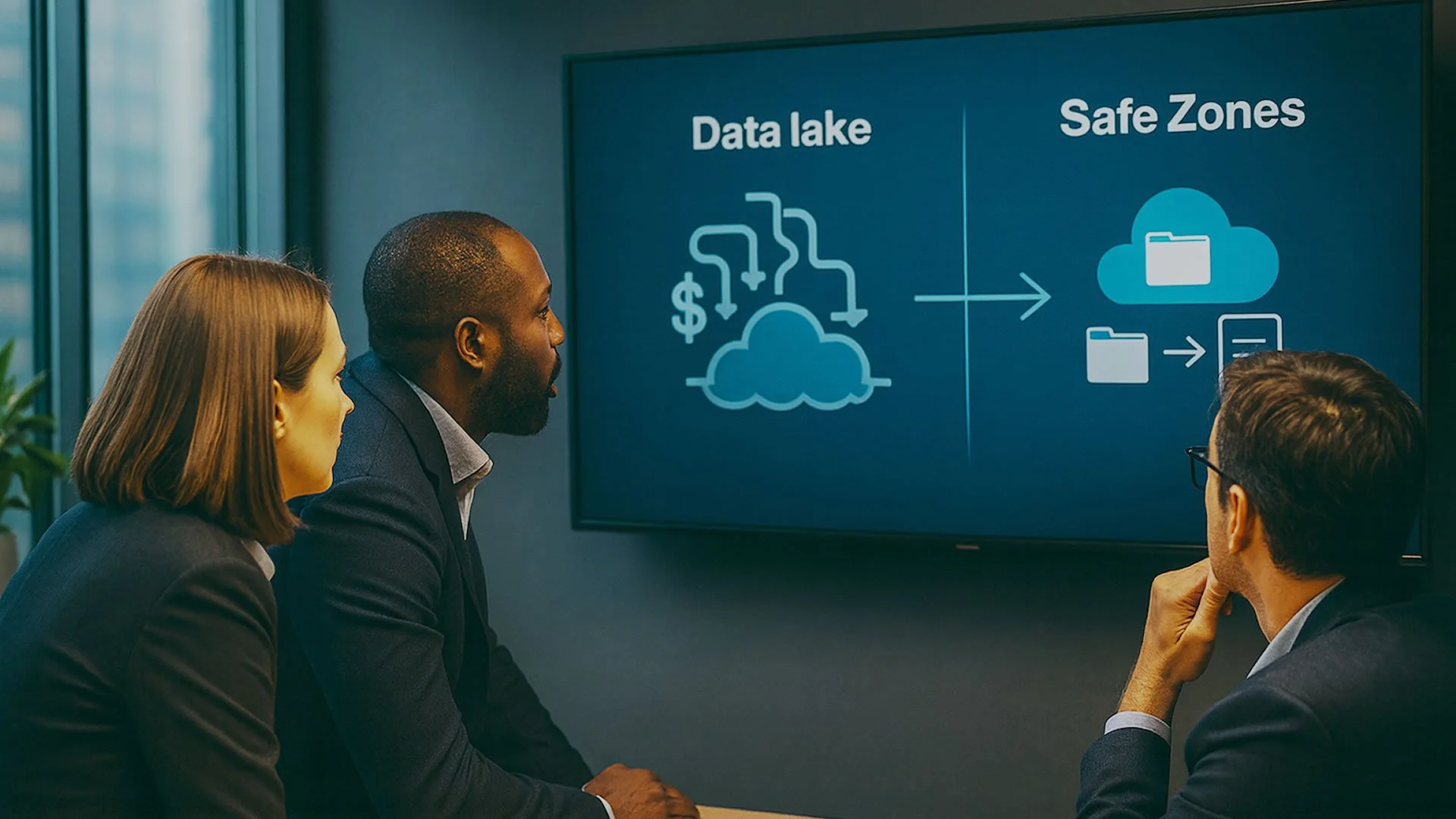Jack Frost Design - The Digital Agency
Upcoming Executive Briefing: Copilot Safe Zones — A Faster, Safer Start to AI. - Learn more

AI That Transforms Company Processes
— Without Massive Projects
Safe Zones augmented with the right data connections give Copilot the power to optimize inventory, service, and operations — faster, safer, and without the cost of a data lake.
AI shouldn’t start with a massive project. It should start with results.
AI for Company Processes
AI can transform not only how individuals work, but how entire business processes run. Traditional “process AI” projects, however, often come with heavy baggage: large data lakes, complex integrations, and months of delay before value is proven.
There’s a faster, safer way. By starting with Safe Zones and then augmenting them with the right system connections — ERP, CRM, ticketing, or inventory systems — you give Copilot the context it needs to power process-level intelligence in weeks, not years.
The old path to AI was a data lake. The new path is a Safe Zone.
You Don’t Need a Data Lake
For years, companies were told they needed a massive data lake before they could even think about process AI. But data lakes are costly, disruptive, and often end up as “data swamps” with little governance.
Safe Zones eliminate that risk. Each zone curates the policies, procedures, and reference knowledge that make data meaningful. Adding a connector simply brings in the live facts — the numbers from your ERP or CRM — so Copilot can combine “what’s happening now” with “what the rules say should happen”.
Safe Zones give Copilot wisdom. Connectors add precision.
From Documents to Processes
Processes AI powered by Safe Zones and connectors can transform:
Inventory & Supply Chain Management— Monitor stock levels, flag shortages, and link directly to supplier contracts and reorder policies.
Customer Service Operations — Triage support tickets using live case data alongside escalation policies.
Production Quality Control — Detect anomalies from machine metrics and pair them with SOPs for response.
Financial Forecasting — Combine current order data with pricing policies and budget rules.
Result: not just another dashboard — Copilot explains why the numbers matter and links to the authoritative documents behind the decision.
AI for processes shouldn’t feel risky. It should feel like progress.
Faster. Safer. More Scalable.
Compared to traditional enterprise AI projects:
No new data warehouse required.
No migration of entire systems.
No all-or-nothing scope.
You start with what you already have: curated departmental Safe Zones and the systems you already run. Each connection adds new intelligence, step by step, without overwhelming your teams.
Outcome: faster time-to-value with lower risk — and no platform replacement required.
One department at a time builds momentum. Many together build strategy.
The Path to Strategic Relational AI
When multiple departments adopt Safe Zones, Strategic Relational AI emerges: executives can see across functions, surfacing risks and opportunities no single system could provide.
By augmenting Safe Zones with the right system connections (ERP, CRM, ticketing, inventory), this intelligence becomes even sharper — blending live facts with curated knowledge so leaders get both context and current state.
Big visions start small — the key is knowing where to begin.
Start Small. Expand Safely.
AI for processes doesn’t need to be a gamble. By layering system connections onto Safe Zones, you deliver immediate wins — and expand only as trust builds.
Start with one process that matters most: inventory, service tickets, production metrics. Prove the value in weeks, then scale across the business.
Reliable. Safe. Transformational. That’s AI for company processes done right.
The first step is small. The impact is transformational.
Ready to Transform Your Business Systems?
Your employees have AI superpowers. Now it’s time to give your business systems the same advantage.
Safe Zones plus Copilot connectors turn your curated knowledge into enterprise-wide competitive intelligence.
Schedule a Systems AI Strategy Session
Discover how AI can transform your specific business processes





